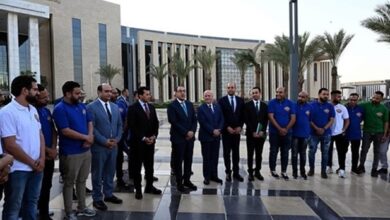
At an Egyptian dining table sits Shah Kafil, an Indian student from al-Azhar’s language and translation school.
Surrounded by his Egyptian colleagues, Kafil speaks about having spent the holy fasting month of Ramadan in Egypt over the past four years.
“Egypt’s Ramadan has no semblance to any other spot in the world,” according to Kafil, who came to study in Egypt as part of a scholarship offered by the Indian embassy in Cairo back in 2011.
Kafil waits for Ramadan every year to experience the heritage he used to read about in his books, especially in the Islamic Cairo areas of al-Hussein and al-Azhar mosque.
“At al-Hussein and al-Azhar, there is the real ambience of the Egyptian Ramadan,” Kafil says, adding that an advantage of the holy month is that Cairo’s usually-crammed streets become less crowded.
Kafil can well recognize the difference of Ramadan traditions and habits, however.
“Here in Egypt, once the Athan (prayer call) is made, people go on eating and almost get stuffed before the athan ends,” Kafil notes. “But in India, we start with a date and a drink, and nobody begins his Iftar (the breaking of the fast) until after Tarawih prayers.
Kafil also dislikes what he suggests to be a state of idleness among citizens during the fasting month. “People here tend to spend Ramadan sleeping; work and productivity almost come to a halt, but in India, Ramadan is a month of work just like any other month”.
Signs of religiousness and spiritualities are also temporary in Egypt’s Ramadan, according to Kafil.
“Though you keep hearing the Holy Quran everywhere, and everybody is seen carrying the Moshaf (the holy book)…that phenomenon, weirdly, disappears after the end of Ramadan.”
Edited translation from Al-Masry Al-Youm




